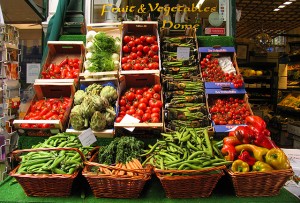A few years ago, a friend lent me the book A Life Stripped Bare, in which a family spends a year trying to live ‘ethically.’ They went about this in a very creative way by basically asking a handful of wise ethically-minded people to “audit” their lives. The people came in and basically went room to room, cupboard to cupboard, discussing items, energy choices, etc. I thought it was a very creative way to learn about these things, and as a concrete examples person, it helps me when things are specific.
So, I thought I’d try my own experiment. On my most recent shopping trip, I bought most of what I might buy during a grocery run, and I snapped pictures of everything as I put it away. I’ve posted the individual items up in a private photo album. What I’d like to do is invite a handful of auditor’s who are knowledgeable on food issues and ethics to view the album and comment on items. Anyone interested can comment below or email me and I’ll invite you to the album.
My hope is that I get specific concrete input on the food choices I’m making and move toward changing those that need changing. I plan on making the album public, or a summary of the album after the ‘audit’.
_______________
For this that are interested, here is what I’m thinking would be a good system for this audit.
I made a facebook album, so the viewer can like or comment on each item. If the auditor approves of continuing to buy a particular item they will “like” the item. If they don’t choose to “like” the item they need to put some comment specifying why not. Comments can be left for a range of things, so they won’t necessarily count as negatives always, but at least the likes will serve as an indicator of support for an item.
I did not put specifics as to the quantities of items that I usually buy. There are some that are only an occasional meal option for my family, but in an effort to make it more universal advice and input I want to leave it to comment on the specific item, not the quantity or frequency of consumption.
We’ll see how this goes.
